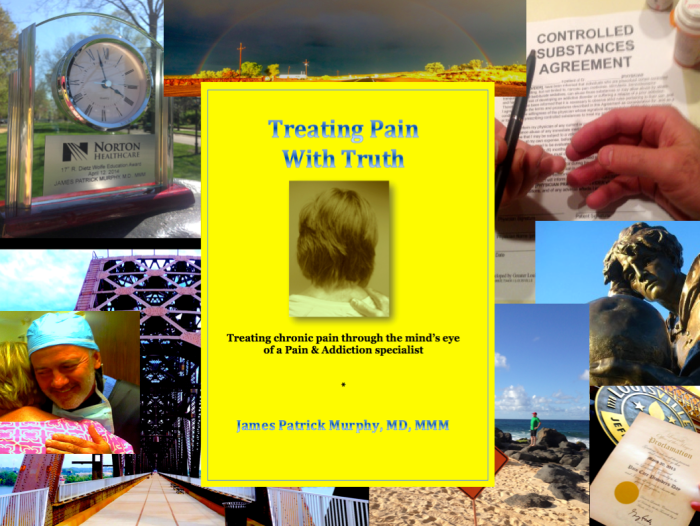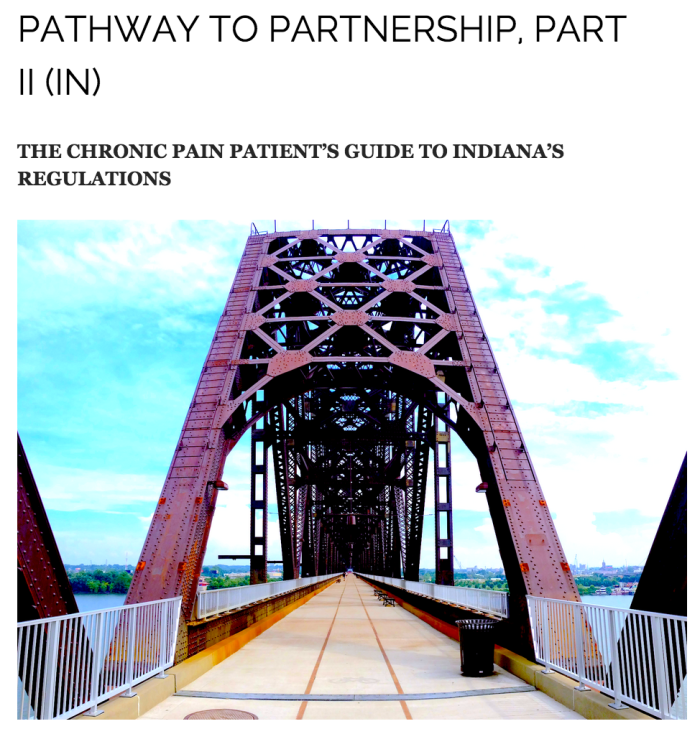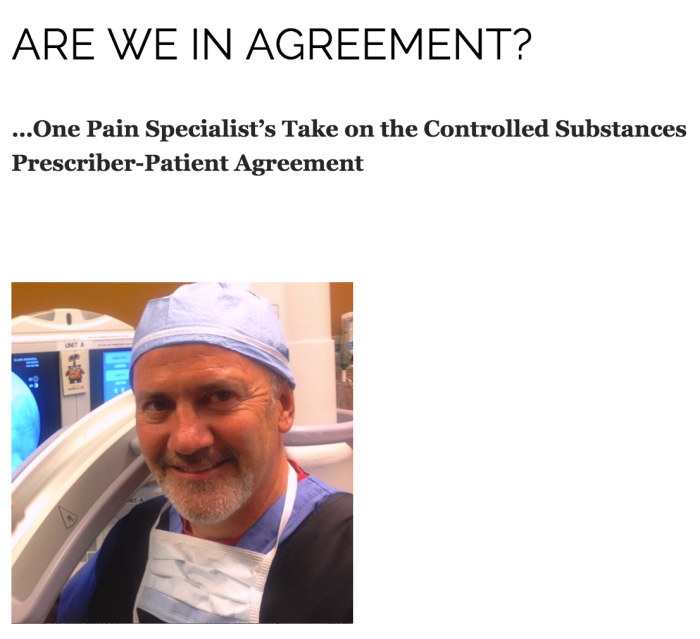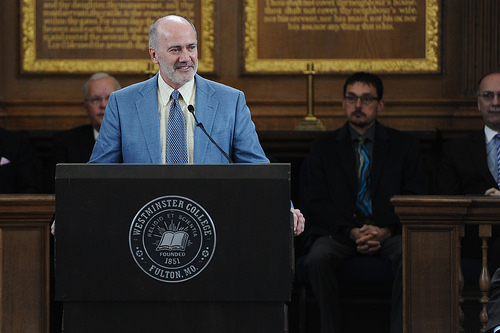Then you will know the truth, and the truth will set you free.
~ John 8:32 (NIV)
…Pain free?
Confluential Truth blog posts address various issues, and many share a healthcare theme. Often the focus is on chronic pain. The following collection of Confluential Truth offers my views on how chronic pain may be effectively and safely treated, especially when the treatment involves controlled substances. Each essay is like a chapter in a mini-textbook about treating chronic pain. They are offered here hoping to provide insight into improving quality of life for pain sufferers and pain care providers.
*
PROLOGUE: The Algiatrist – To set the tone, a poem about treating pain and being “useful.”
 https://jamespmurphymd.com/2013/11/22/the-algiatrist
https://jamespmurphymd.com/2013/11/22/the-algiatrist
*
CHAPTER ONE: The Dream of Pain Care – A transcript of my address to the physicians and staff of Norton Healthcare – the what, why & how. If you only have time to read one essay, this is the one.
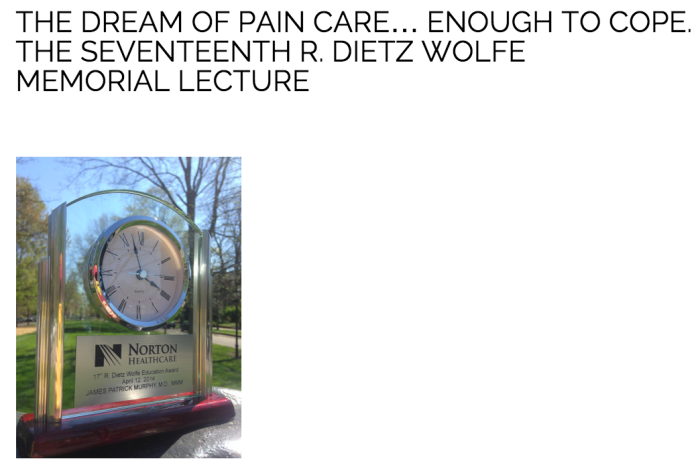 https://jamespmurphymd.com/2014/04/25/the-dream-of-pain-care-enough-to-cope-the-seventeenth-r-dietz-wolfe-memorial-lecture
https://jamespmurphymd.com/2014/04/25/the-dream-of-pain-care-enough-to-cope-the-seventeenth-r-dietz-wolfe-memorial-lecture
*
CHAPTER TWO: Pathway to Partnership, Part 1 (KY) – Here is how we do it in Kentucky when we do it right.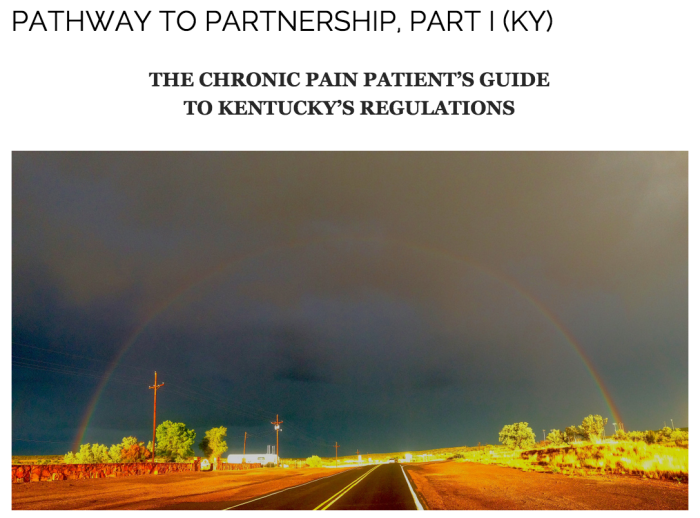 https://jamespmurphymd.com/2015/02/13/pathway-to-partnership
https://jamespmurphymd.com/2015/02/13/pathway-to-partnership
*
CHAPTER THREE: Pathway to Partnership, Part 2 (IN) – Here is how we do it in Indiana when we do it right.
https://jamespmurphymd.com/2015/03/29/pathway-to-partnership-part-ii-in
*
CHAPTER FOUR: Are We In Agreement? – Expectations, edification and enlightenment result from properly implemented patient-physician “agreements.”
https://jamespmurphymd.com/2014/02/19/are-we-in-agreement
*
CHAPTER FIVE: Treating Pain Patients Like Addicts – There is ample overlap between optimal treatment for addiction and optimal treatment for chronic pain. Utilizing this knowledge can enhance the effectiveness and mitigate the risks inherent to treating chronic pain with controlled substances.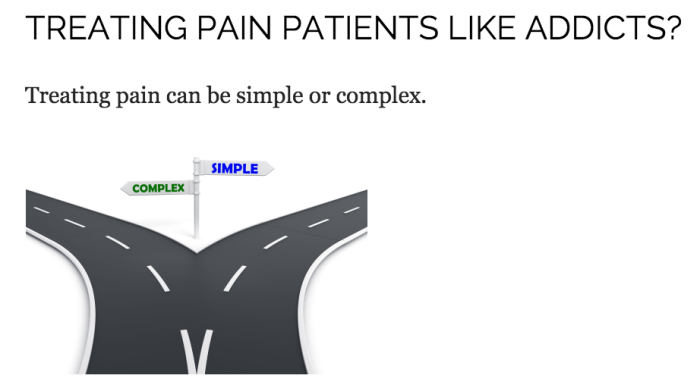 https://jamespmurphymd.com/2014/11/21/treating-pain-patients-like-addicts
https://jamespmurphymd.com/2014/11/21/treating-pain-patients-like-addicts
*
CHAPTER SIX: Basic Pain Care Certification – It’s a sad fact the number of deaths associated with drug overdose is roughly equivalent to the number of motor vehicle fatalities. Imagine how many might die on our roads if, instead of a driver’s license, all you needed to drive a car was a prescription from a doctor. Now, imagine how many less might die of drug overdose if you had earn a “license” to use controlled substances…
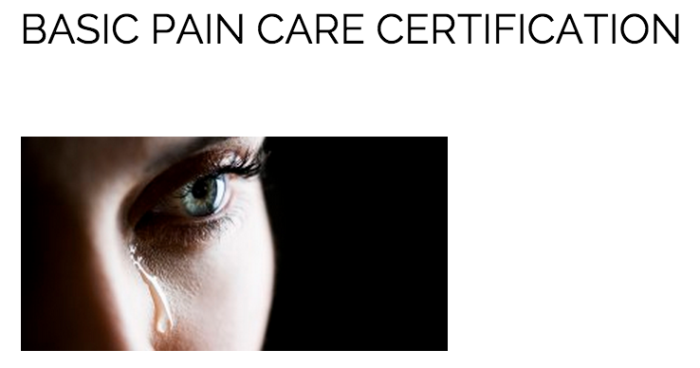 https://jamespmurphymd.com/2014/08/06/basic-pain-care-certification
https://jamespmurphymd.com/2014/08/06/basic-pain-care-certification
*
CHAPTER SEVEN: Strength in Numbers – Successful chronic pain treatment involves: (a) medical care; (b) counseling; and (c) a support system. Find all three and you have probably found…
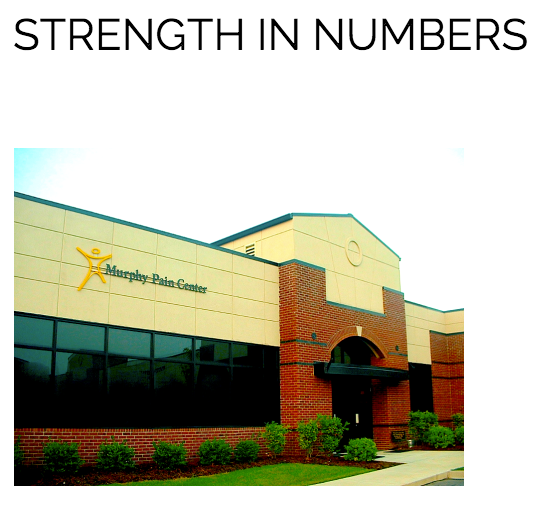 https://jamespmurphymd.com/2014/07/02/strength-in-numbers
https://jamespmurphymd.com/2014/07/02/strength-in-numbers
*
CHAPTER EIGHT: It’s Only Words – Over the years I have given many presentations concerning medication management for chronic pain. Often I have said that if there is only one concept I want the group to take away it’s that “addiction” and “physical dependence” are not the same thing.
 https://jamespmurphymd.com/2014/04/03/its-only-words
https://jamespmurphymd.com/2014/04/03/its-only-words
*
CHAPTER NINE: Talking Trash – We spend much time worrying about the acquisition of pain medications but too often don’t know what to do with them when we are done.
 https://jamespmurphymd.com/2014/07/21/talking-trash
https://jamespmurphymd.com/2014/07/21/talking-trash
*
CHAPTER TEN: Is There Method To This March Madness? – Too often our focus is on a specific drug, when in reality the culprit is the disease.
 https://jamespmurphymd.com/2014/03/18/is-there-method-to-this-march-madness
https://jamespmurphymd.com/2014/03/18/is-there-method-to-this-march-madness
*
EPILOGUE: Proclaim Pain Care Providers Day! – Don’t just provide great pain care… Proclaim it!
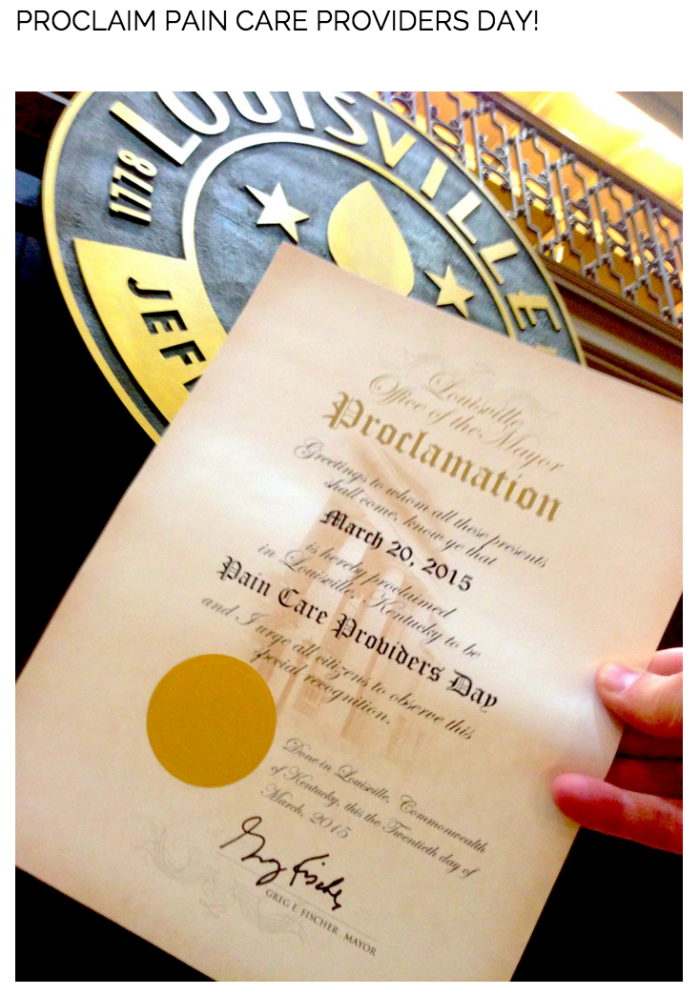 https://jamespmurphymd.com/2015/01/22/proclaim-pain-care-providers-day
https://jamespmurphymd.com/2015/01/22/proclaim-pain-care-providers-day
*
*
*
James Patrick Murphy, MD, MMM is Chair of the Board of Governors -and Immediate Past President- of the Greater Louisville Medical Society, Medical Director of Murphy Pain Center, and an Assistant Clinical Professor at the University of Louisville School of Medicine. Dr. Murphy contributes to numerous publications, has presented before national and international audiences, and consults with a wide spectrum of agencies and individuals regarding pain, addiction, and the future of healthcare in our country. He is board-certified in Pain Medicine, Anesthesiology, and Addiction Medicine.
*
*
*
